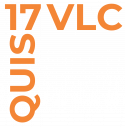“Sustainability – Challenges and Opportunities for Service Research”
The interactive session focuses on the role of sustainability in terms of challenge-driven service business and societal transformation for service research. The aim is to discuss how sustainable societal practices or sustainability can be achieved through business transformation by zooming in to innovation from an ecosystem perspective. More specifically the focus is on challenges and opportunities for service research: How can service research on sustainability contribute to a broader view of service business transformation by zooming in to innovation and transformation.
The basis for this concurrent session is a new edited book titled “Business Transformation for Sustainable Future” (Routledge publishers, September 2021, New York), with contributions from service scholars.
The session will be led by the three editors of the book Samuel Petros Sebhatu, Bo Enquis and Bo Edvardsson, and include five panelists, authors of four chapters in the book:
- Maria Francesca Renzi – “Sustainable business practice for Transformative Change: The Case of Eataly” – Chapter Four
- Ray Fisk and Lia Patricio – “Designing for Transformative Collaboration in Complex Service systems” – Chapter Five
- Per Kristensson – “Transforming People’s Lives and World for the Better: The New Purpose of Marketing” – Chapter Seven
- Ana Valdés and Javier Reynoso – “Advancing Service Research at the Base of the Pyramid: A Service Ecosystems Perspective” – Chapter Eight
The discussion will zoom in on the future of service research in the field of business transformation for a sustainable future and invite comments and suggestions from all attending in this session.
Serving Humanity: ServCollab’s Progress and Collaborative Brainstorming for Future Plans
The session will be led by: Raymond Fisk (State University, USA), Rodoula Tsiotsou (University of Macedonia, Greece), Karim Sidaoui (Radboud University, Netherlands) and Sertan Kabadayi (Fordham University, USA).
This interactive session will summarize ServCollab’s (www.servcollab.org) progress and invite brainstorming on possible future collaborations in pursuit of serving humanity.
ServCollab’s first public presentation of its formation and goals occurred at the QUIS Conference in 2019. In the short time since, ServCollab has sought to build the conceptual scaffolding necessary to accelerate human progress through ServCollab publications and events.
The first publication in the 2020 Journal of Service Management was titled “Elevating the Human Experience (HX) Through Service Research Collaborations: Introducing ServCollab.” In addition to building a logic for elevating Human Experience (HX), the article introduced three ServCollab research themes: service inclusion, service language, and climate change.
The second publication in the 2021 Journal of Public Policy & Marketing is titled “Rethinking Service Systems and Public Policy: A Transformative Refugee Service Experience Framework.” This article was a collaboration among 13 scholars from different disciplines and backgrounds and built an emergency services logic for meeting refugee’s needs for service inclusion.
The third publication in the 2021 Service Science was titled “Service Ecosystem Health: A Transformative Approach to Elevating Service Science.” This article proposed the service ecosystem health metaphor as a reframing of service science to serve the full spectrum of human needs. This article proposed a thought experiment called the Goldilocks Civilization that reimagines human service ecosystems to expand their ability to support individual human life, human societies, and the biodiversity of the planet.
In addition, ServCollab has collaborated with the Journal of Services Marketing to organize a forthcoming ServCollab Special Issue titled “Broadening and Reinvigorating the Service Discipline to Reduce Human Suffering and Improve Well-Being.”
ServCollab Live video events in 2021 have included a workshop on building collaborations to elevate human experience, a session on preparing submissions for the ServCollab Special Issue, a “ServCollabing With Leonard Berry” where he offered advice on crafting research projects and research teams, and a ServCollab Ideation Workshop on Refugee Well-Being.
ServCollab is building a virtual data base/library of publications related to relevant topics using Zotero and Facebook Guides available to all who join us as ServCollabers.
Brainstorming for the Future
Brainstorming about what ServCollab might do in the future is the second part of this session. For example, ServCollab encourages brainstorming on forming a global open science service commons that becomes the virtual place where ideas and tools for «Serving Humanity Through Collaboration» are shared.
In addition, ServCollab is interested in brainstorming regarding how the service research field might initiate collaborative relationships with scholars who work in the many human facing academic disciplines (such as the humanities, social sciences, the arts, criminal justice, education, health care, industrial engineering, and social work). We are similarly interested in service research collaborations with corporations, nonprofits, and government agencies. ServCollab also solicits feedback on exploring ways to stimulate and mentor doctoral and early career researchers on relevant service topics.
Serviceology
The session will be led by: Prof. Satoshi Shimada in collaboration with Prof. Yoshinori Hara and Prof. Spring H. Han from the Graduate School of Management, Kyoto University
Japan is a one-of-a-kind country in terms of culture and services, each with its own particular flavor. Omotenashi, a highly devoted Japanese service style, offers customers startling experiences not just in so-called hospitality services such as hotels and restaurants, but also in any other service requiring human contacts. The robot is another highly advanced element. Service robots immersed in Japanese craft culture and pop cultures (Anime and Manga) provide a potential future value creation alternative.
The Society for Serviceology is a service research community based in Japan that covers a broad range of themes and expertise. SfS seeks to contribute to efforts addressing numerous industrial issues by organizing the vast knowledge of services, as well as to develop «academics for the society» relevant to services. The Society was named «service-ology,» which means «academics for the society» with this goal in mind, and it will lead efforts to create a community in which researchers from various fields such as social sciences, human sciences, and engineering sciences can communicate, respect each other, and improve through friendly competition.
During the special session, SfS will highlight its current research projects, introduce research institutions, and investigate future research directions and prospects.





